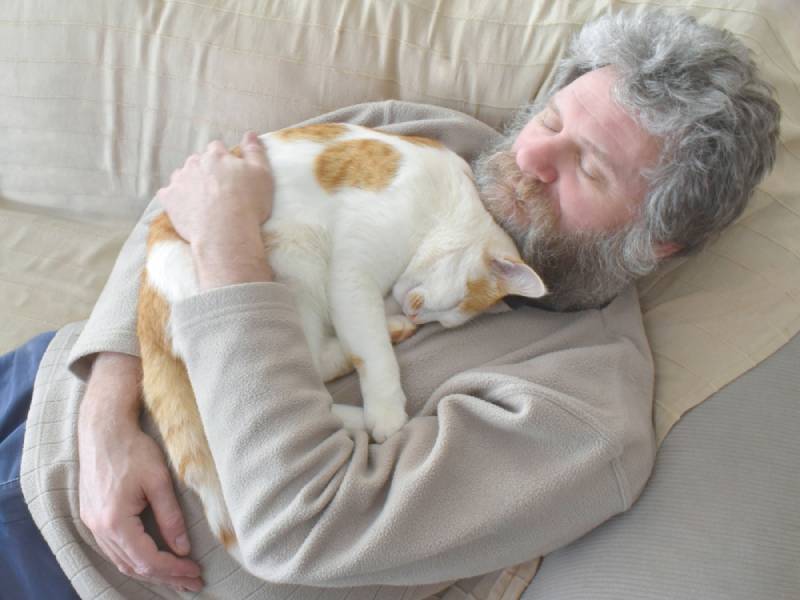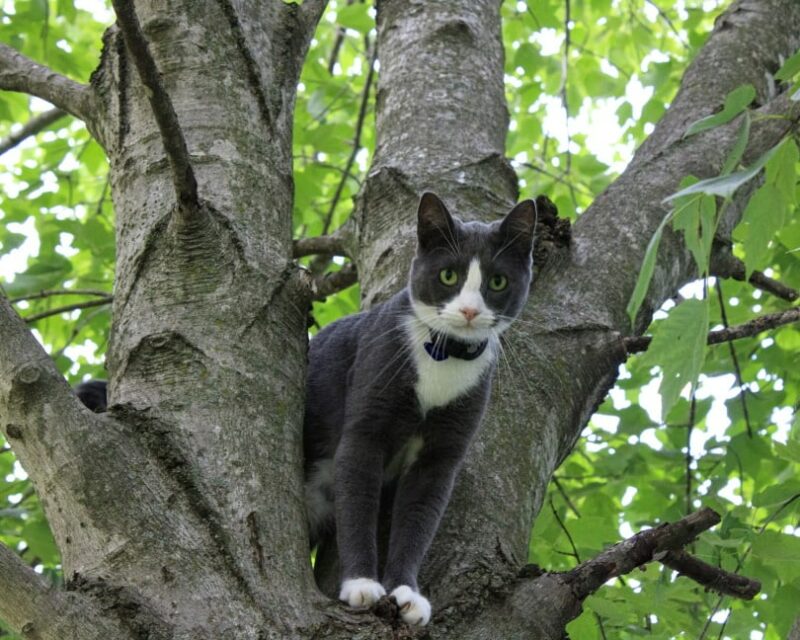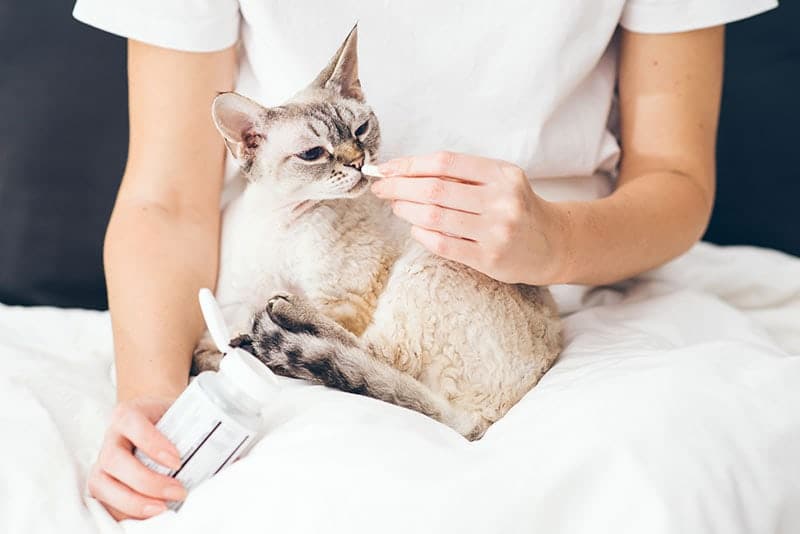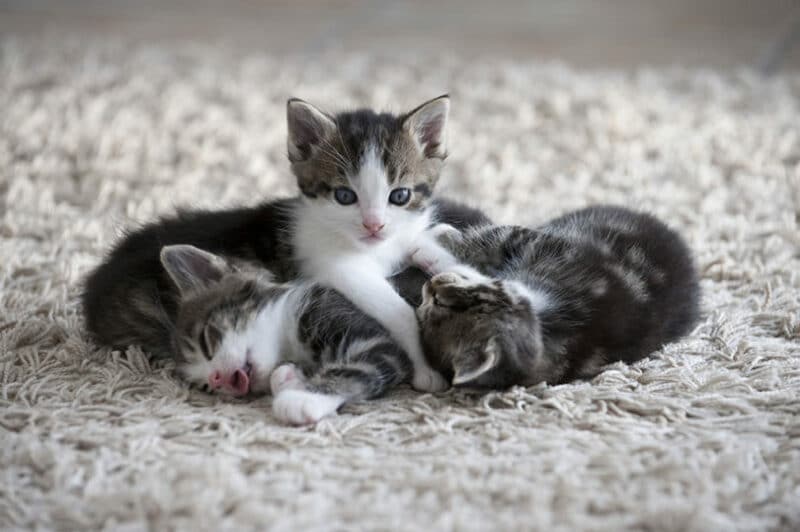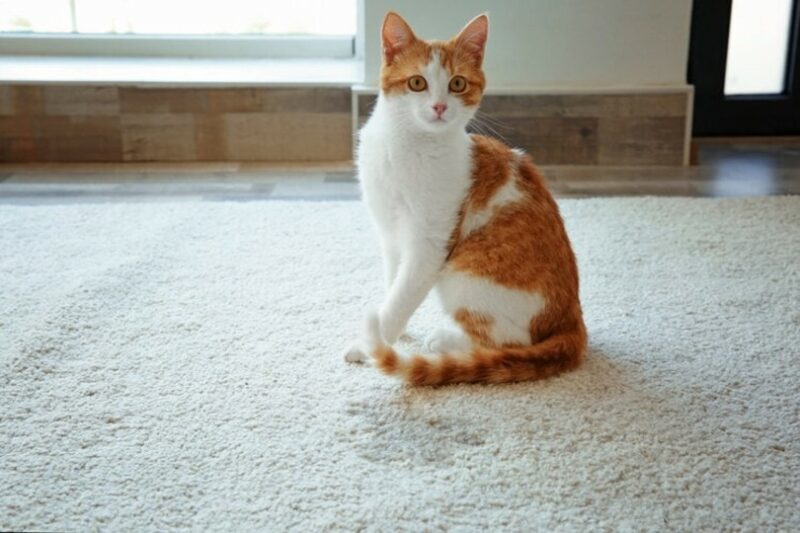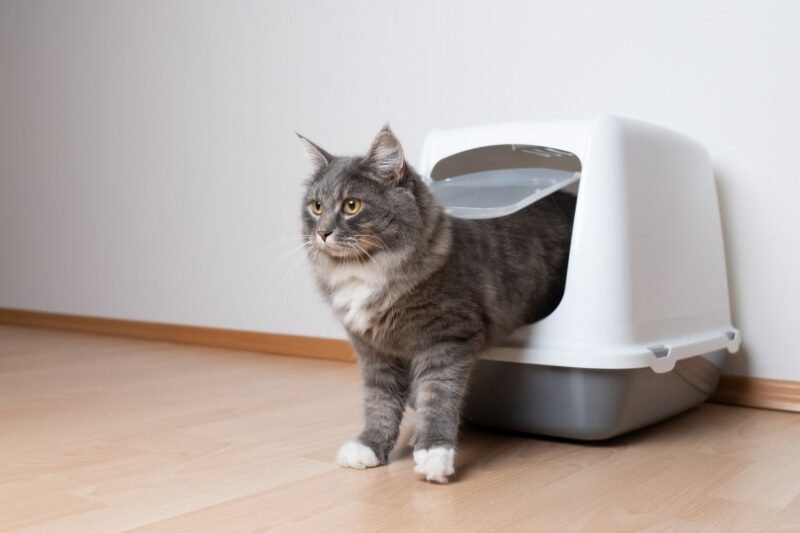In this article
If you have a cat, you know that nighttime is party time. Cats are crepuscular, which means they hunt and play the most in the evening and early morning. For you, that could mean annoying behaviors at the crack of dawn while you’re still getting your beauty sleep.
Cats’ nighttime behavior can be annoying at best or disruptive at worst. If you don’t find a solution, it can negatively impact your sleep and disrupt other aspects of your life. Here are some common annoying nighttime cat behaviors and some possible solutions.

The 5 Annoying Habits of Your Cat That Don’t Let You Sleep
1. Nipping or Pouncing on Your Body

One of the most annoying nighttime cat behaviors is treating you like a cat toy. If your cat wants you to play with them, they may nip or nibble at your toes, fingers, or ears, play with your hair, or pounce on any lump or bump under the covers. No matter how deeply you sleep, that’s tough to ignore.
2. Meowing or Yowling Incessantly
Whether you lock your cat out of the bedroom or leave the door open, cats know that meowing or yowling gets attention. Your cat may sit outside the door meowing, or worse, climb on your chest and meow in your face until you wake up to give them what they want.
3. Pawing or Scratching at the Door
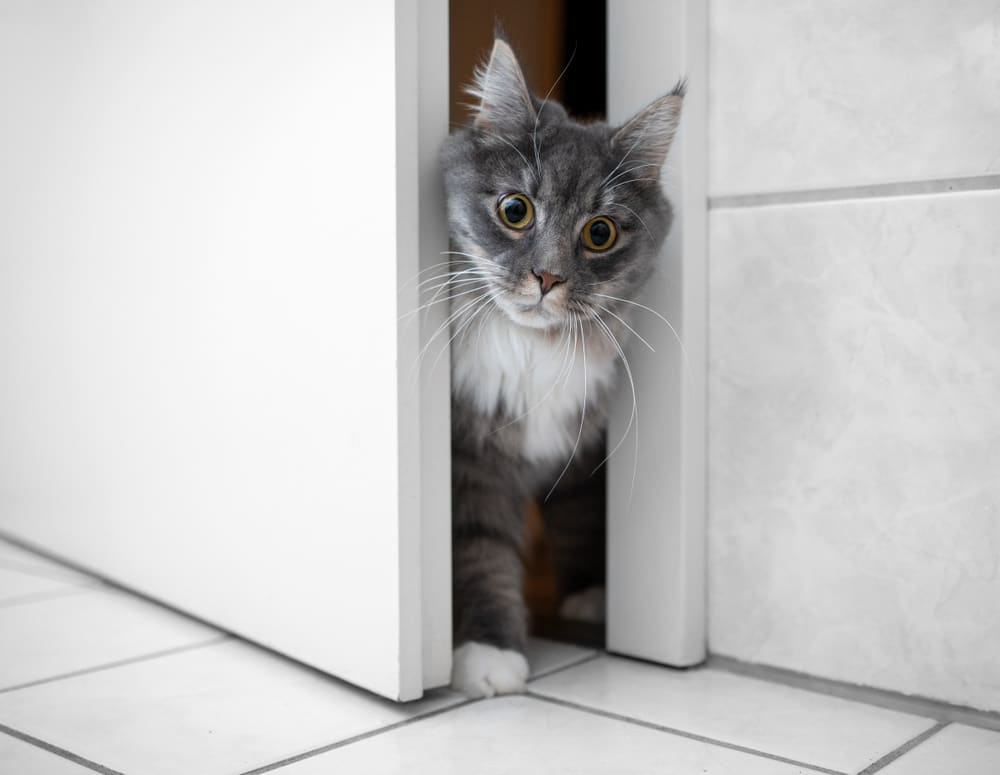
If you do close the door, your cat may sit outside and paw and scratch, rattling the door the whole time. There are a lot of reasons cats want to get behind a closed door, but when it’s your bedroom at night, it’s an attention-seeking behavior to wake you up or demand some food.
4. Running Around the House
Cats are active at night, so if your cat is bored, they may tear through the house to amuse themselves. This could include walking across the counter or bookshelf, knocking loud things over, or climbing the furniture in your bedroom until you react.
5. Playing Loudly
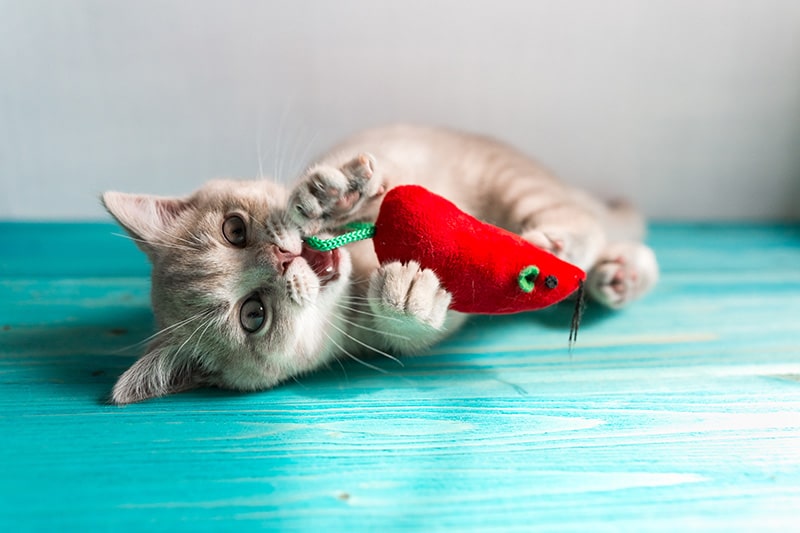
Like running around the house, turning nighttime into play by excitedly jumping across you or across furniture, chasing shadows or faint slivers of light. If you move in your sleep, that’s a good opportunity to chase and pounce to keep themselves occupied.

Why Are Cats Annoying at Night?
Cats have a natural instinct to hunt and get out excess energy late at night and early in the morning. This is common, but there could be some other causes for the behavior:
- Boredom: If your cat is alone a lot or doesn’t have adequate stimulation, they may take to nighttime behaviors to get attention and relieve that excess energy.
- Daytime rest: If your cat is home alone during the day, that’s a lot of time to nap and lounge around, leading to a cat with a lot of energy to burn at night.
- Hunger: Depending on your cat’s sleep schedule, they may be waking you up at night because they’re hungry and want food.
- Health problems: Some health conditions can cause annoying night behaviors, especially if they arise out of nowhere. In older cats, dementia is a common cause of strange nighttime behaviors like vocalization and neediness. Pain and thyroid problems can also affect your cat’s night activity. If this is a new behavior, schedule an appointment with a vet.
If you need to speak with a vet but can't get to one, head over to PangoVet. It's an online service where you can talk to a vet online and get the advice you need for your pet — all at an affordable price!

How Can I Get My Cat to Leave Me Alone at Night?
Your cat may always be a bit of a night owl, but you can take some steps to help them sleep better at night and leave you to sleep.
- Don’t reward nighttime behavior by giving in to your cat with play or food. Even negative attention, such as scolding, inadvertently reinforces the behavior.
- Dedicate time to play in the evening. If you tire your cat out with vigorous games of fetch or chasing the mouse on a rod, they may sleep better through the night and leave you alone.
- Adjust the feeding schedule. Cats often eat and then take a long nap. You can feed your cat later in the evening and give your cat a little bit more food if they’re a healthy weight to see if it helps. Another option is an automatic feeder, which ensures your cat has the food they want at set times—preferably when you’re still asleep.
- Get interactive toys for when you’re away. If your cat is napping throughout the day, automatic toys can keep your cat busy when you’re not there. Try toys like puzzle feeders or chase toys and treat-dispensing toys.
- Speak to a vet. If you suspect there are health issues contributing to your cat’s behavior, schedule a checkup and discuss options with a vet. Some medications may help your cat sleep better and stay relaxed through the night.

Conclusion
Cats settle into a routine, but for some, that could include irritating behaviors designed to wake you up and get attention during the night. If your cat’s nighttime behaviors are becoming disruptive, you can try a few of these tips and schedule a vet appointment to get back to a good night’s rest.
Featured Image Credit: Maliflower73, Shutterstock
